The Lotus Elan was the first Lotus road car to use a steel backbone chassis with a fibreglass body. This style of construction was to be repeated in subsequent Lotus models for nearly three decades. At approximately 680 kg, the Elan embodied Colin Chapman's minimum weight design philosophy.
It was said to be the car with the most perfect steering. Sports Car International named the Elan number six on the list of Top Sports Cars of the 1960s.
Because of its successful design and rigorous attention to cost control on the body, chassis, engine and transmission, the Elan become Lotus' first commercial success and contributed to the funding of its achievements in racing over the next ten years.
The performance of the Elan was derived from the combination of its powerful engine (by contemporary standards) and lightweight. The roadholding and agility of the car also meant that high speeds could be maintained on corners, which allowed for high average speeds.
While the structure of the Elan followed an entirely traditional approach for sports cars of the time - front engine, rear wheel drive - its design included novel ideas that found their way into the designs of other manufacturers' vehicles. There are approximately 770 known remaining vehicles of the two-seater Elan.
Lotus resisted modifying the car to make it more suitable for racing but eventually created a racing version of the Elan, the Type 26R. Only around 100 of them were built.
1960s/70s Elans are now passing half a century old and, as a well respected Lotus and a fine example of Colin Chapman's design philosophy, are valued today as collectors' vehicles.
The simple design of the car, with nearly all parts being readily replaceable, makes it well suited for the collector market. New chassis, bodies and drive train components are all available. There are numerous suppliers of Elan parts and restoration services, worldwide. Conveniently, the fiberglass body is immune to rust.
Racing Pedigree: The 26R Variant
The "26R" designation signifies the competition variant of the Lotus Elan. This version was purpose-built for motorsport, and as such, it featured a host of upgrades that enhanced its track capabilities. With modifications like reinforced chassis components, competition suspension, improved brakes, and a limited-slip differential, the 26R was ready to take on the challenges of the racetrack.
The Track-Bred Legend
In the world of motorsports, there are few cars that can match the legacy of the Lotus Elan Racing Special. This iconic racer is a testament to Lotus' unwavering commitment to innovation and excellence, as well as its dedication to pushing the boundaries of what's possible on the track. From its early days at Silverstone to its legendary performances at SPA and beyond, the Lotus Elan Racing Special has earned its place in the annals of racing history.
The Lotus Elan Racing Special was first introduced in the early 1960s as a high-performance version of the popular Elan road car. The S4 variant featured a number of upgrades over the standard Elan, including a more powerful engine, improved suspension, and enhanced brakes. These modifications made the S4 an ideal candidate for racing, and it quickly gained a reputation as a formidable competitor on the track.
One of the earliest and most significant racing events for the Lotus Elan Racing Special was the British Saloon Car Championship at Silverstone. In 1963, the car made its debut at the circuit, and it quickly proved to be a force to be reckoned with. The Elan took home first and second place in its class, cementing its status as a top-performing racer.
But the Lotus Elan was just getting started. Over the next few years, the car would go on to dominate at some of the most prestigious racing events in Europe. Perhaps its most impressive showing came at SPA in 1965, where the car took first place in its class and finished an impressive third overall. This stunning performance was a testament to the car's superior handling, speed, and reliability.
Throughout its racing career, the Lotus Elan S4 Racing Special was meticulously maintained and serviced, with complete documentation available to prove its pedigree. This level of care and attention to detail is evident in the car's performance on the track, as it consistently delivered top-notch results in even the most challenging conditions.
Today, the Lotus Elan S4 Racing Special remains a highly sought-after collectible for racing enthusiasts and car collectors alike. Its storied racing history, complete documentation, and FIA pass make it a true treasure for those who appreciate the legacy of this iconic vehicle.
In conclusion, the Lotus Elan Racing Special is a true legend of motorsports, with a racing career that spans some of the most significant events in European racing history. Its impressive performance, complete documentation, and FIA pass make it a highly coveted collectible, and a testament to Lotus' commitment to excellence and innovation on the track. Whether you're a racing enthusiast or simply appreciate the beauty and power of a well-crafted vehicle, the Lotus Elan S4 Racing Special is a true marvel of engineering and design.
This Lotus Elan S4 left the factory on the 18th of April 1969 with this engine number L-18851 and was rebuilt to 26R Racing Special by Dave Wills Engineering (with the use of Type 26R components) in 1990/91. The Elan 26R was a very successful race car even in Le Mans, like the Elite before it, the Elan had a power/weight ration that helped it compete against much more powerful cars.
This car has a racing history at Silverstone, SPA and many others with a lot of podium finishes. Complete racing and service documentation since 1991 is included. Engine output after factory modifications 170 hp / 680 kg weight! The condition of the car is fully functional, plus no damage. Very precise shifting, steep steering, rear wheel drive + all equipment, meeting racing homologation. But it also has a road legal registration in EU. The car comes with two spare sets of wheels including wet tyres and the adjustable suspension was already installed on the car.
The car is prepared for the 2024 racing season. It took in March 2024 two class third places at the Autodrom Most circuit.
| Production date | 05.05.1969 |
|---|---|
| Body Type | Coupe |
| Engine | 1.594 ccm, 170 PS, I4 |
| transmission | Manual |
| Steering | Right Hand Drive |
|---|---|
| Layout | Rear Wheel Drive |
| Color - exterior | Brooklands Green / Yellow |
| Color - interior | Black / Silver |
| Miles/Kilometers shown | 87.000 mls |
|---|---|
| Chassis / VIN | 36-8818 |
| Location - Country | Czechia |
| Location - City | Jablonec nad Nisou |
2-door coupe body type; RWD (rear- wheel drive), manual 4-speed gearbox; gasoline (petrol) engine with displacement: 1594 cm3, advertised power: 125 kW / 168 hp / 170 PS; characteristic dimensions: outside length: 3683 mm, width: 1422 mm, wheelbase: 2134 mm; reference weights: estimated curb weight: 680 kg; top speed: 213 km/h (133 mph)
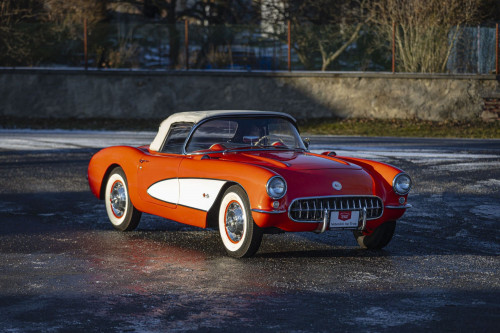
Písek, CZ
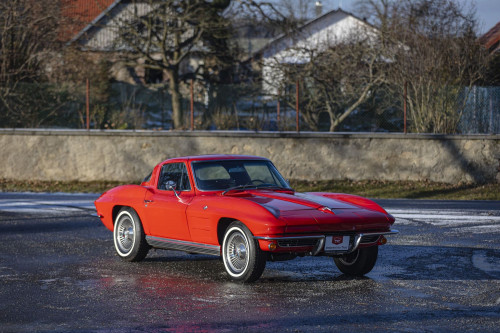
Písek, CZ
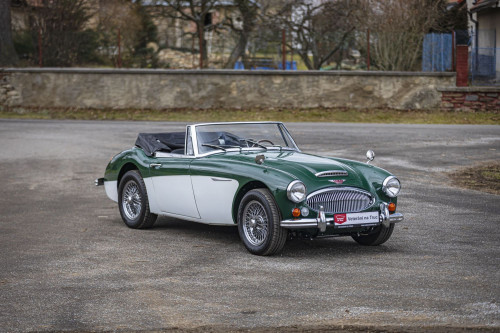
Písek, CZ
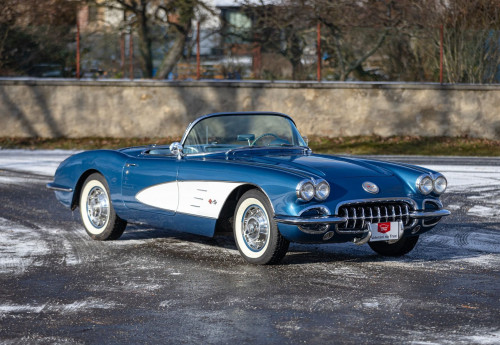
Písek, CZ
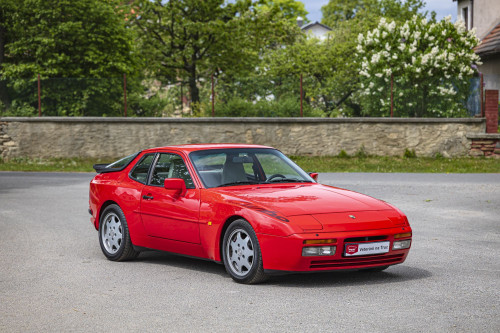
Písek, CZ

Písek, CZ